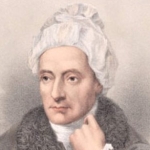1
On a wall shadowed by lights from the distance
is the screen. Icons come to it dressed in capes
and their eyes reflect the journeys their nomadic
eyes reach from level earth. Narratives are in
the room where the screen waits suspended like
the frame of a girder the worker will place upon
an axis and thus make a frame which he fills with
a plot or a quarter inch of poetry to encourage
nature into his building and the tree leaning
against it, the tree casting language upon the screen.
2
The telephone is Flaubert’s parrot and it flitters
from perch to perch across the city. Or someone
is holding the dead thing in her hand in a remote
hotel. A sensitive person with a disability who
speaks to the inanimate. She may even resemble
Louise Colet or the helpful niece. She hasn’t sent
her meaning and I am absent in these reminiscences
of her. The telephone is the guignol of
messages.
It may have been cold moving down from roofs,
a continental wind caught between buildings.
Leaves and pollen blowing onto fire escapes.
Windstruck hambones lying in a gutter. Equinoc-
tial changes the body knows, the hand feels, the
truck passes without notice and buildings con-
tinue their nervous commitments. The earth may
have been moaning underneath this junk. I am
caught in the wind’s draft.
3
At night viewing the screen of distance
with shadowy icons framed by light
I understood the rasping interior
was rearing other icons,
No longer gentle they flashed ripened clauses,
or images raised formidable projections of ice,
the wall was placed in a temporary position
where words glittered from a dark cover,
Narcissism lived in a silver hut.
4
In the lighter time of year words arrived
concealed in branches. Flaubert exchanged
himself for words, night became a night of
words and a journey a journey of words, and
so on.
Words became “a superior joke”, I trembled
under a revolutionary weight, a coward fleeing
from a cloud. The ego of words stretched to
the room’s borders assuming the sonorous
movement of a poem.
5
I entice this novice poem with a mineral, Beryl.
The dictionary bestows on Beryl a skittish description,
like a sequence in which a car
moves over ruptured roads and slices
into ghost veins of color—
a camera follows each turn,
examines the exits where rock protects
a visionary tool that prods it:—
“A light greenish blue that is bluer
and deeper than average aqua,
greener than robin’s eggs blue,
bluer and paler than turquoise
blue and greener and deeper than beryl
blue—a light greenish blue that is bluer
and paler than beryl or average turquoise blue—
bluer and slightly paler than aqua.”
The speculative use of mineral prevents an
attachment to words from overflowing, inserts
a vein of jazz, emblems of color and overcomes
the persecuting stretch of racetrack where words
race their mounts ....
6
Beryl became a distraction as one speaks of color
field or someone as a colorist or of color pre-
dominant, so the paper on which the poem would
rest was grainy with color flashing lights
and the depth, the deepness of the country lane
on which shadows found repose was a wilderness of
color, ditches and trees lost their contours. I
created a planned randomness in which color
behaved like a star.
7
To introduce color to form
I must darken the window where shrubs
grazed the delicate words
the room would behave
like everything else in nature,
Experience and emotion performed
as they did within the zone of distance
words ending in fluid passages
created a phenomenal blush
dispersing illusion ....
8
A difficult poem intrudes like hardware
decorating a quiet building, a tic taking
over the facade, a shrug exaggerated by a
column—
Shelley sailing into the loose wind,
the storm of neurosis hindering the formal plan,
a suggested dwelling left on the drawing board
with clumps of shrubs indicating hysteria or,
Daylight gleams on the rough street where a
blameless career sighs, the poet beak dips
in air, his little wings cause a mild stir,
as someone comes down the stair
he pleads with infancy,
A woman speaks to a dish, old forks, amid her
preparations she smiles touched by history.
Chipped, sundry evidences of temporal life
hiding in a bush. In formal dress domestic
remarks reel into a corpus known as stanzas.
9
The Bride raised the cloud settled on her
aspen head and stepping away from her bachelors
she seized like wands the poem I handed her:
“A life glitters under leaves
piled for anonymity ...”
She would lead us through glass to view the
enigmatic hill where a castle slung a shadow.
10
There was a dream within a dream and inside
the outer dream lay a rounded piece of white
marble of perfect circular dimension.
The dreamer called this marble that resembled
a grain of Grecian marble, “Eva Knachte,”
who was blown into the dream by the considerate
rage of night.
Her name evoking night became a marble pebble,
the land on which she rested was the shore
of the sea that washed over her and changed
her lineaments into classic marble, a miniature
being, yet perfect in this dream, her size
determined by the summer storm with which
I struggled and seized the marble.
The marble was a relic, as were the movements
of nature on the poem. The sea had lent
a frieze, waves a shoulder when the investitures
of a symbolic life feuded. In that dimness
with bristles, straw, armor plate, grotty
Alexandrines there appeared a mobile fiction ....
11
A man who calls himself a Baron yet strays from
his estate into the cadmium yellow
of a bewildering sunset rendered by apprehension
where a broad approach to a narrow tunnel
is fanned by leaves is faced with a decision—
at the stylized ominous entrance he wonders
if reality will maintain him or empathic snow
subdue his quest ....
12
I sifted through these fictive ambiguities
until there was a plain moment
something like a black table where
Dialogue set in motion urged a search
in memory for that tonal light
illuminating the screen,
The Baron faded as distance gleamed
a clear jar multiplied by frost.



















Comment form: